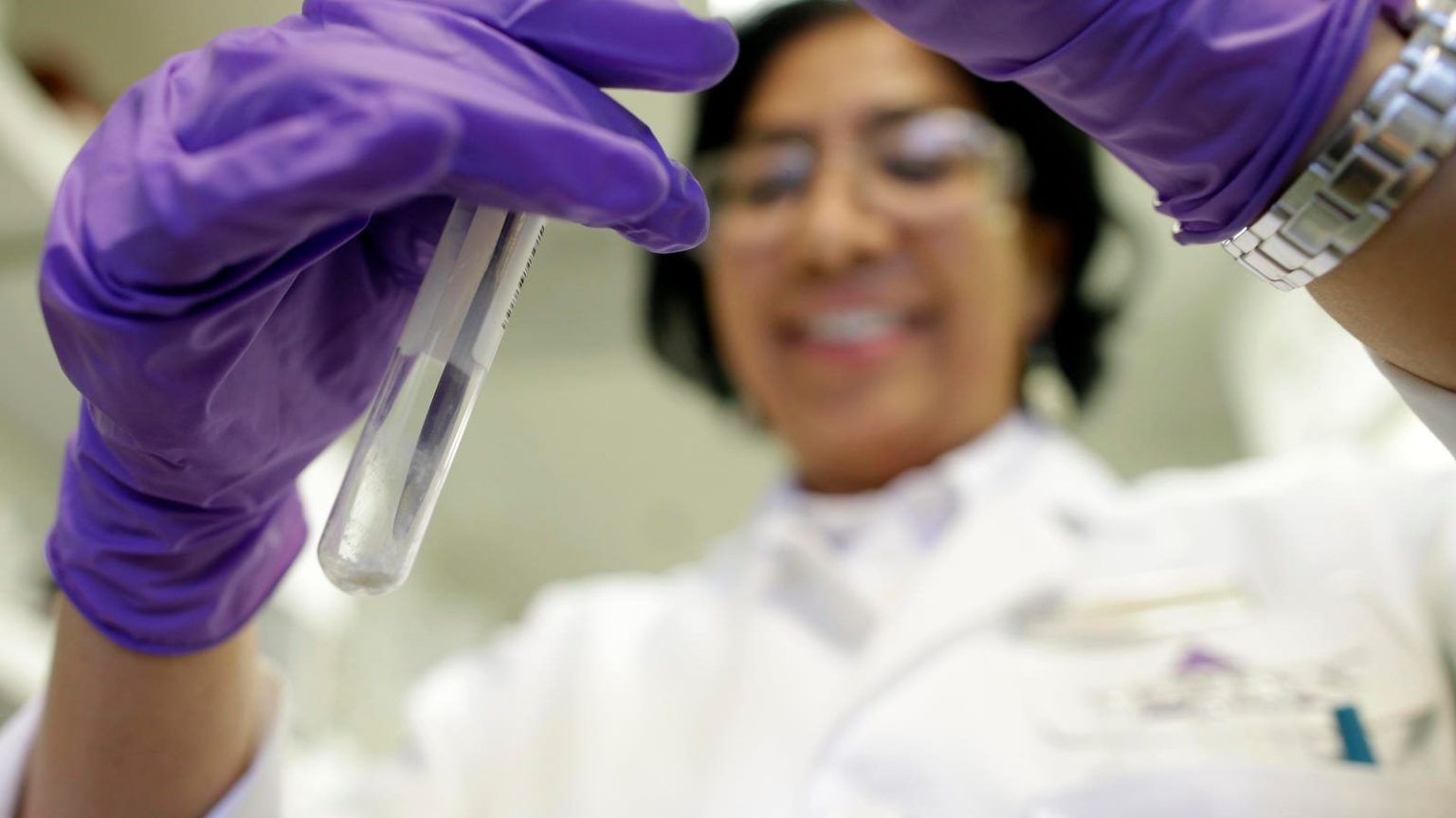Topline
U.K. regulators on Thursday approved a therapy based for two blood disorders based on Crispr gene editing, the country’s medicine’s regulator said on Thursday, a world first for the lauded tool that has revolutionized the life sciences and is poised to transform medicine.
Key Facts
Britain’s Medicines and Healthcare products Regulatory Agency (MHRA) said it had authorized a therapy, Casgevy, that “uses the innovative gene-editing tool Crispr” to treat sickle cell disease and beta thalassemia (β-thalassemia).
Both are inherited blood disorders caused by errors in genes for hemoglobin, the protein red blood cells use to ferry oxygen around the body, and are “painful, life-long conditions that in some cases can be fatal,” said Julian Beach, the regulator’s interim executive director of healthcare quality and access.
The green light for Casgevy marks the first time a medicine using the powerful gene-editing tool has been authorized and marks a leap forward for treating the conditions, the MHRA said.
Clinical trials suggest Casgevy, produced by Boston-based Vertex Pharmaceuticals and Switzerland’s Crispr Therapeutics, can restore the body’s ability to produce functioning hemoglobin by editing faulty genes.
The one-time treatment helped relieve symptoms of disease and could free patients from the need for bone marrow transplants or regular blood transfusions, Beach said, adding that the drug hopefully offers a permanent fix for the condition.
The MHRA said it identified no significant safety concerns during the trials and will continue to closely monitor Casgevy’s safety after approval.
What To Watch For
Vertex CEO and President Reshma Kewalramanit celebrated Casgevy’s approval as “a historic day in science and medicine” and Samarth Kulkarni, CEO and Chairman of Crispr Therapeutics, said it will hopefully mark “the first of many applications of this Nobel Prize winning technology to benefit eligible patients with serious diseases.” The two companies are hoping for similarly positive decisions from the MHRA’s counterparts in the Europe Union and the U.S., which are in the process of evaluating Casgevy, also known as exa-cel. The Food and Drug Administration is expected to make a decision in early December and has a deadline of December 8. The agency appears poised to follow the MHRA and approve the treatment, with its advisors confident of the drug’s efficacy and benefit but wary of theoretical unintended consequences of genetic modifications.
Key Background
Crispr, which stands for short for clustered regularly interspaced short palindromic repeats, is a powerful gene-editing tool that has transformed biology since its discovery little over a decade ago. The tool, derived from bacterial immune systems, netted its discoverers the Nobel Prize in Chemistry in 2020. Crispr is often likened to a pair of genetic scissors for its ability to enable the precise manipulation of DNA, life’s guidebook that outlines how every cell in our body works. Precise gene editing opens up a world of possibilities in the life sciences, from correcting faulty genes in medicine to potentially tweaking DNA to enhance desirable traits to boosting crop production, conveying protection against disease or even resurrecting extinct animals. While the benefits are obvious and many, experts warn there may also be a darker side to Crispr, particularly when it comes to gene editing humans, including potential security threats of engineered diseases and the potential for a slippery slope towards eugenics.
Is CRISPR safe? Genome editing gets its first FDA scrutiny (Nature)
Blind Mice Regain Eyesight After Crispr Gene Editing (Forbes)
Read the full article here





